Does High Blood Pressure Increase Your Risk for Alzheimer’s?
High blood pressure and Alzheimer’s
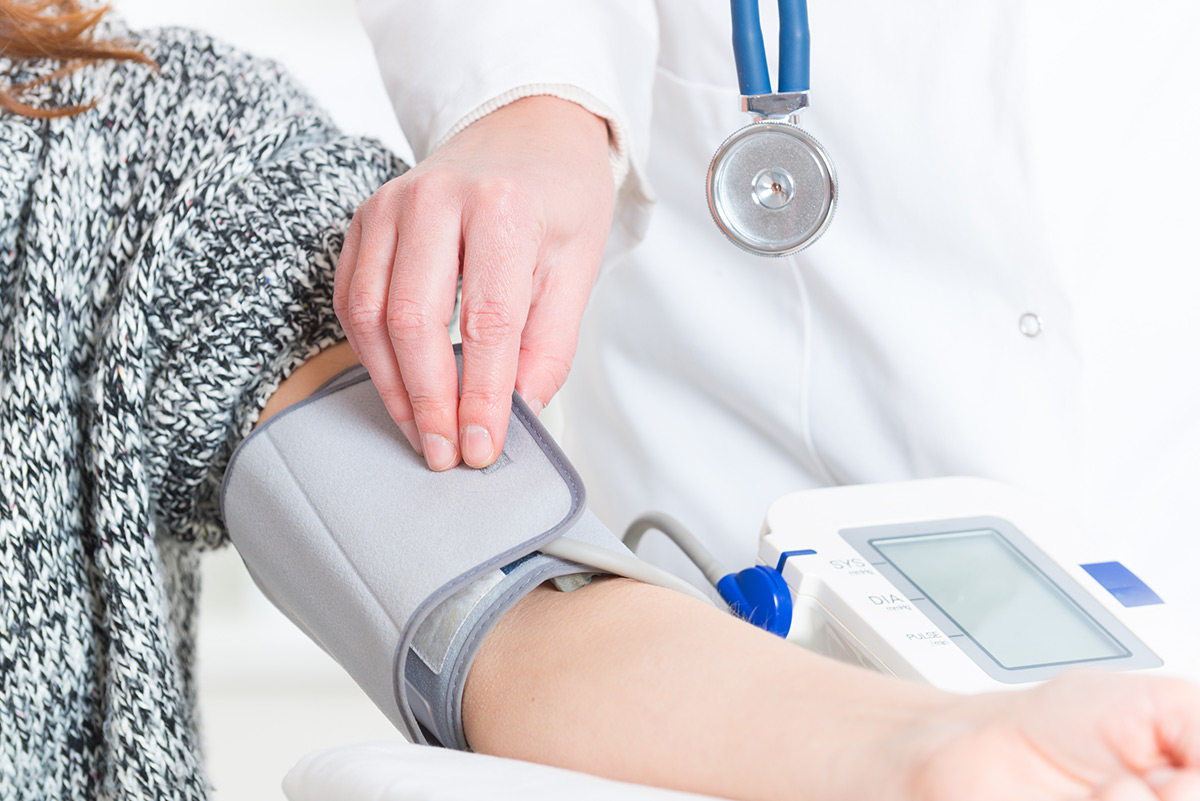
While there is no known cure for Alzheimer’s disease, researchers have determined several factors than can increase your risk for developing Alzheimer’s or another form of dementia. In the last decade, studies have shown a strong link between high blood pressure in mid-life and Alzheimer’s risk.
You might already be aware of your blood pressure. Any time you go to the doctor, you likely have your blood pressure taken. This is because blood pressure is a major indicator of health. High blood pressure, also known as hypertension, can lead to heart disease and stroke. In addition, there are often no symptoms of high blood pressure until you have a major health event. This is why it’s crucial to regularly take your blood pressure.
You may have already known about the importance of blood pressure in regards to heart disease, but now you can add blood pressure to your list of things to keep in check to reduce your risk for Alzheimer’s.
What is blood pressure?
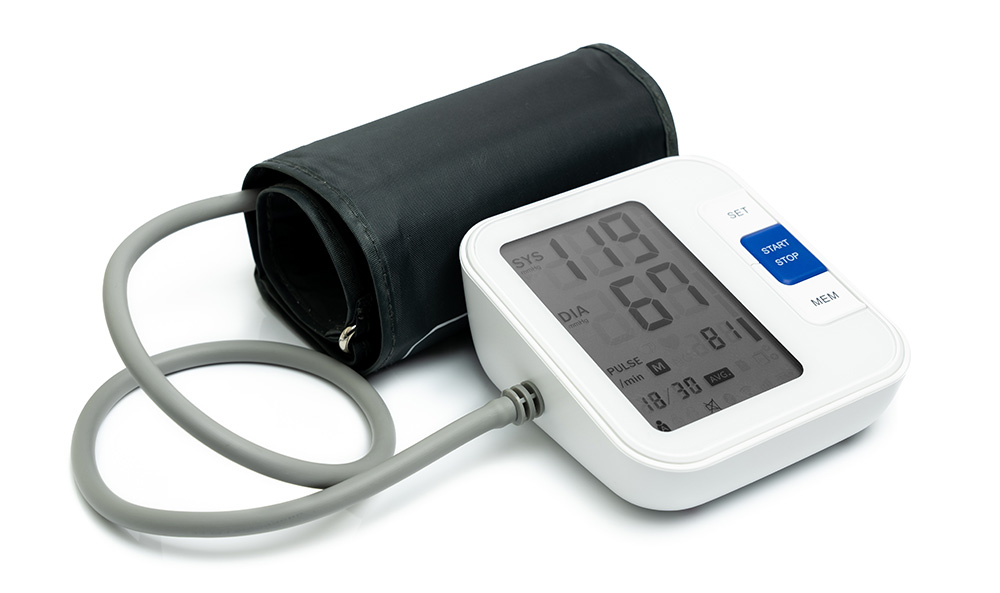
Before we get into why blood pressure can affect your risk for developing Alzheimer’s disease, it might be helpful to understand what blood pressure actually is. Just because you’ve had your blood pressure taken numerous times in your life, doesn’t necessarily mean you understand what those numbers mean.
Blood pressure measures the force put on your arteries as blood circulates. If that force is too high, that’s a sign your heart is working hard to pump and distribute blood through your body.
Blood pressure is measured by two numbers: systolic pressure over diastolic pressure. Those numbers are measured in millimeters of mercury (mm Hg).
Systolic pressure measures the pressure put on your arteries per heartbeat.
Diastolic pressure measures the pressure in your arteries while your heart is resting between beats.
Blood pressure numbers: What’s normal, what’s not?
Normal blood pressure: 120/80 mm Hg
Elevated blood pressure: 120-129 / >80 mm Hg
High blood pressure (hypertension stage 1): 130-139 or 80-90 mm Hg
High blood pressure (hypertension stage 2): 140+ or 90+ mm Hg
Hypertensive crisis: 180+ and/or 120+ mm Hg
If you don’t know your blood pressure, set up an appointment with your doctor to get tested.
Blood Pressure Categories
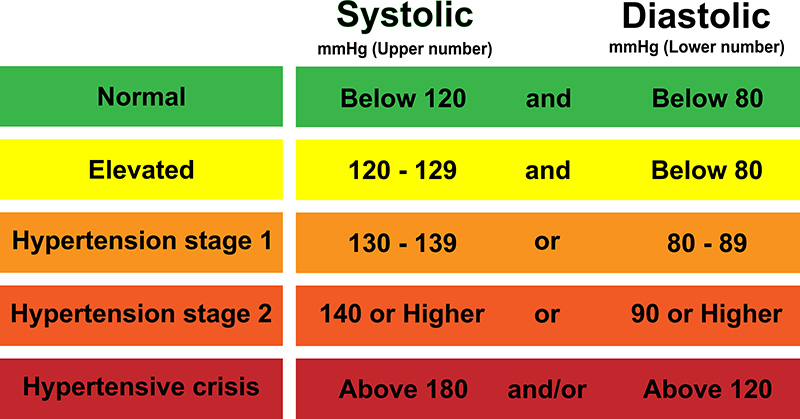
Why does blood pressure affect your risk for Alzheimer’s disease?
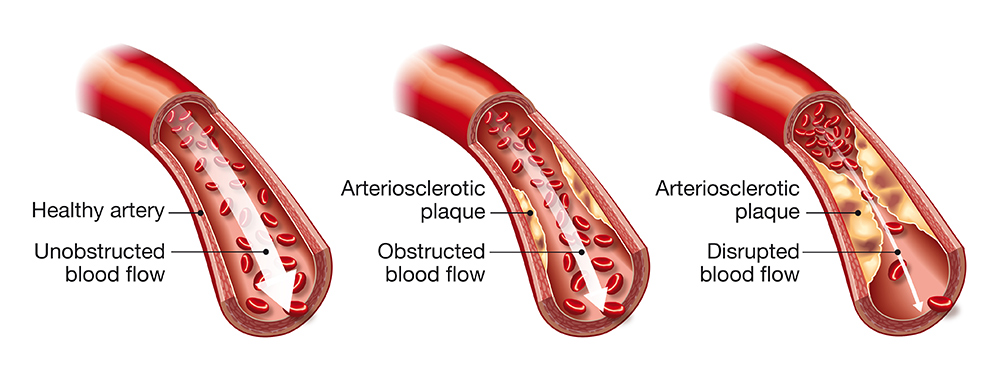
Brain health and cardiac health are inextricably linked. This is because even though our brains only make up about a fortieth of our bodyweight, they receive a fifth of our “cardiac output.” Simply put, our brains need a lot of blood. A lot of healthy, flowing blood.
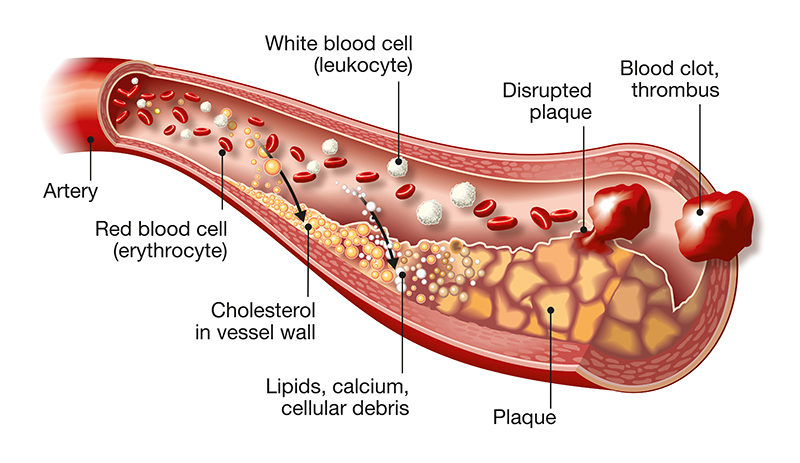
High blood pressure thickens the walls of the arteries, restricting blood flow over time. This is known as arteriosclerosis and can occur in arteries responsible for carrying blood to the brain. If the brain doesn’t have sufficient blood flow, it is restricted of oxygen and nutrients essential for keeping brain cells healthy. This type of damage to brain cells can lead to vascular dementia, the second most common type of dementia that usually goes hand-in-hand with Alzheimer’s. If you have vascular dementia, in most cases, you will also develop Alzheimer’s disease.
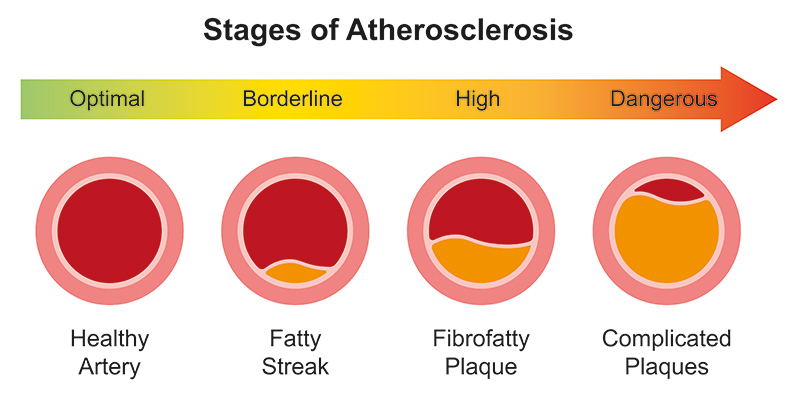
High blood pressure is also the leading cause of stroke, which can lead to vascular dementia, and can cause microbleeds in the brain that can lead to subcortical vascular dementia, a type of vascular dementia that affects the white matter in the brain beneath the cortex.
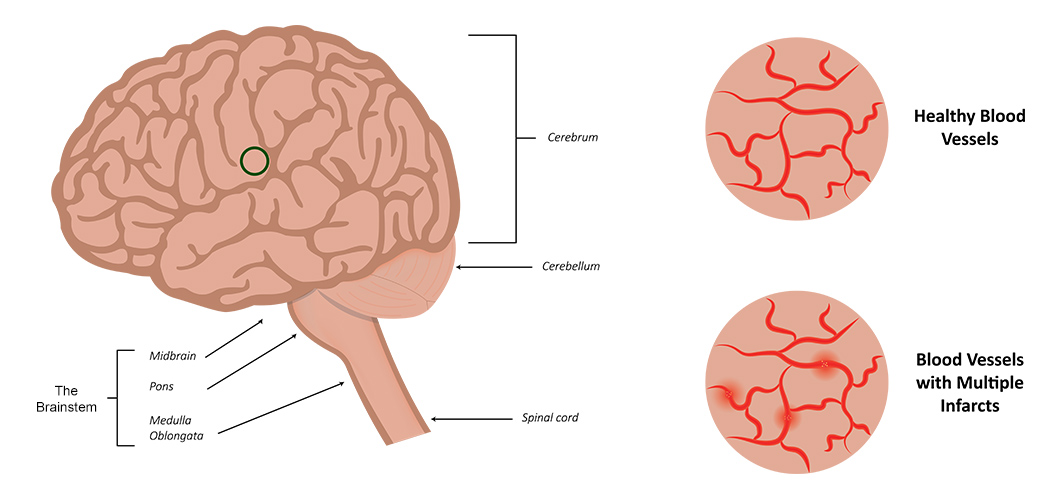
Studies that prove lowering your blood pressure can reduce your risk of Alzheimer’s disease
A number of studies have proved there is a link between high blood pressure and dementia or Alzheimer’s risk.
The SPRINT-MIND study: SPRINT (Systolic Blood Pressure Intervention Trial) is the largest interventional trial to look at the connection between blood pressure and dementia risk. Its studies have determined that lowering blood pressure in participants age 50 and older decreased their risk for mild cognitive decline (the early signs of Alzheimer’s disease) by 20% and reduced the progression of white matter lesions in the brain, which are linked to subcortical vascular dementia.
NIH/National Institute on Aging: In a study that reviewed possible interventions for dementia, findings led the National Academy of Science, Engineering and Medicine to conclude that there was enough evidence to share with the public that lowering blood pressure, especially in mid-life, can lower your risk for developing dementia.
The Lancet Commission: This British journal found that treating hypertension in participants age 45 and older reduced their risk for developing dementia.
Center for Disease Control and Prevention (CDC): In this article, the CDC recommends controlling hypertension to prevent cognitive decline.
How to lower your blood pressure
So, how can you lower your blood pressure if you know it’s high or if you’re worried it could be? Fortunately, blood pressure is something we can largely control with a healthy lifestyle and the right medication.
1. Diet and exercise
According to the Mayo Clinic, regular exercise can reduce your blood pressure by 5 to 8 mm Hg. They recommend 30 minutes of moderate activity daily. A mix of cardio and strength work is ideal.
Eating a nutrient-dense diet can also help lower blood pressure. The DASH (Dietary Approaches to Stop Hypertension) diet focuses on foods that are rich in potassium, calcium and magnesium–nutrients that help control blood pressure–and foods that are low in sodium, saturated fat and added sugars, as these can raise your blood pressure.
2. Stress management
3. Sleep
Getting less than six hours of sleep per night for several weeks can lead to hypertension. Making sure you’re getting enough sleep (seven to eight hours per night) can help regulate your blood pressure. Since sleep is often associated with stress and anxiety, managing your stress, as we mentioned above, could help you sleep better too.
4. Smoking and vaping
It is a well-researched fact that smoking increases blood pressure. Quitting will help lower your blood pressure and decrease your risk for heart disease and other illnesses linked to tobacco use.
5. Alcohol
Drinking too much can raise your blood pressure as well as limit the effectiveness of blood pressure medications. It is believed that limiting alcohol to less than one drink per day for women and two drinks per day for men can lower your blood pressure.
6. Medication
There are numerous types of medications available to help lower your blood pressure, including beta blockers, diuretics, ACE inhibitors, angiotensin II receptor blockers and calcium channel blockers. If you have high blood pressure, talk to your doctor to see if one of these medications could be right for you.
While you can’t control whether you develop dementia or Alzheimer’s, you can control your risk level. Getting your blood pressure under control is one of the most effective risk reducers when it comes to cognitive decline. Talk to your doctor to see what you can do to maintain a healthy heart and, therefore, a healthy brain.





